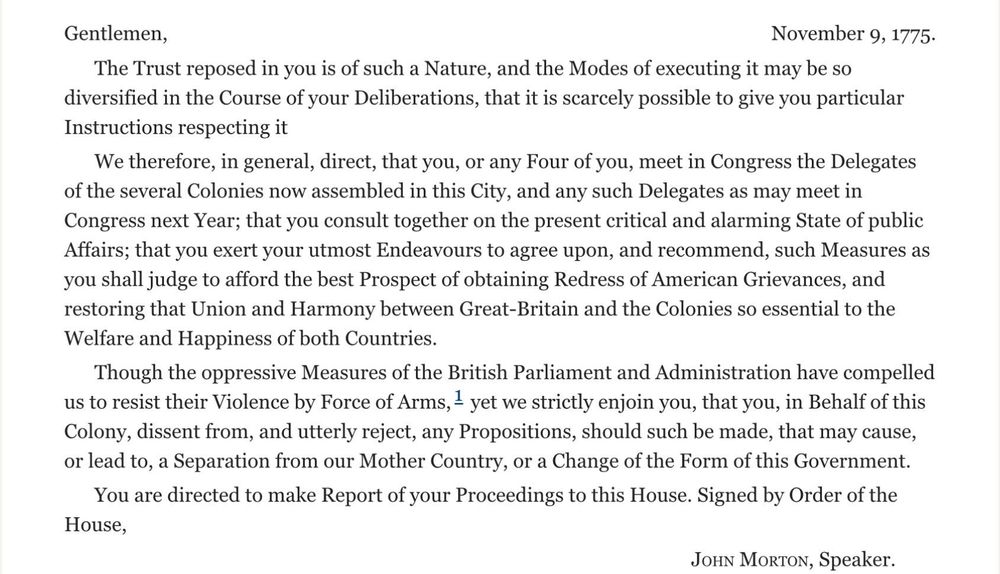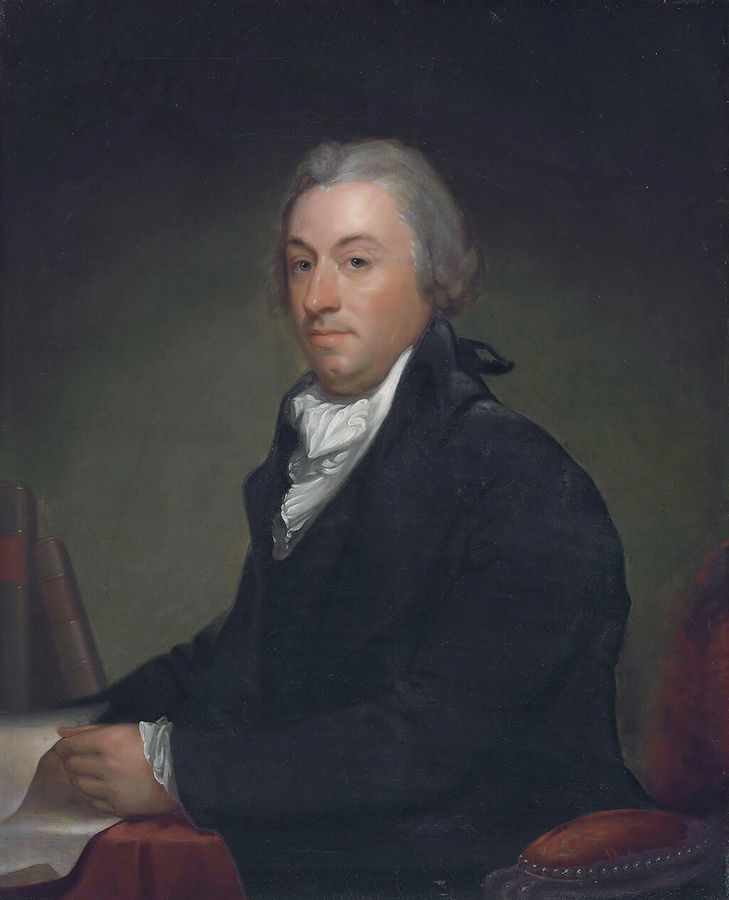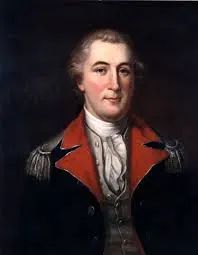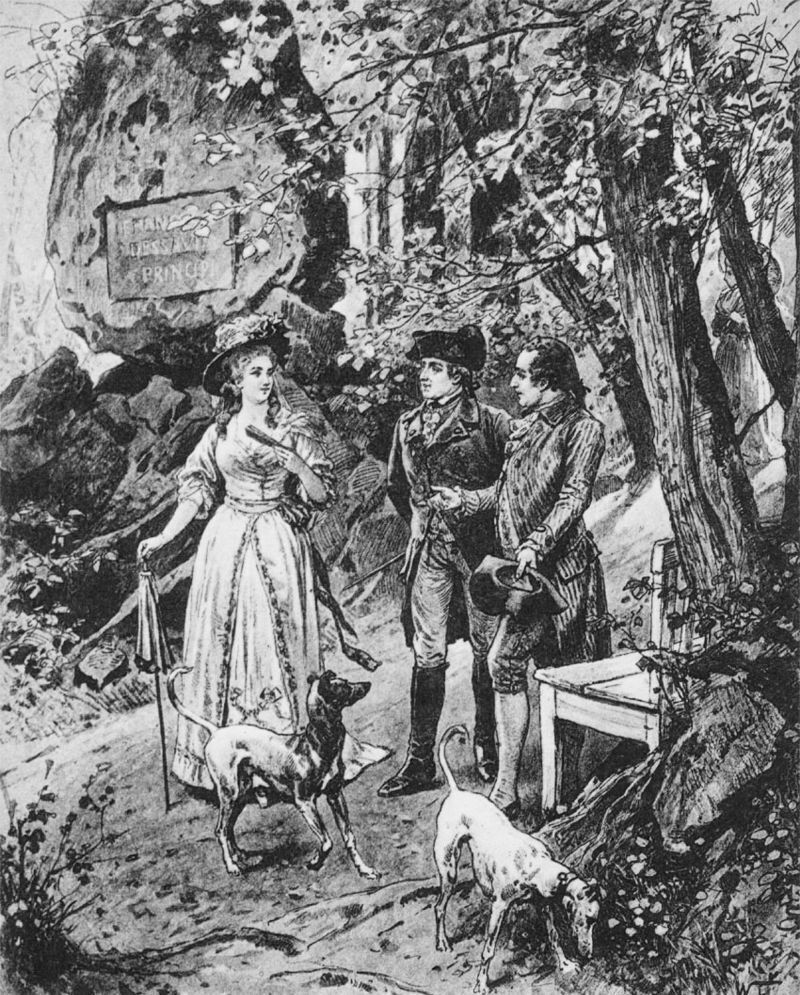
250 Years Ago News
@250yearsagonews.bsky.social
The events of exactly 250 years ago today (1775). A project in conjunction with America’s semiquincentennial. By Jon Blackwell, an editor at the Wall Street Journal. Also follow me @100yearsagonews.bsky.social
Nov. 10, 1775: The Continental Congress resolves that "two persons be sent to Nova Scotia to enquire into the state of that colony" and "the disposition of the inhabitants towards the American cause." The intelligence will be forwarded to Gen. George Washington to aid him in possible military moves.

November 10, 2025 at 4:51 PM
Nov. 10, 1775: The Continental Congress resolves that "two persons be sent to Nova Scotia to enquire into the state of that colony" and "the disposition of the inhabitants towards the American cause." The intelligence will be forwarded to Gen. George Washington to aid him in possible military moves.
Nov. 10, 1775: Richard Penn, a Pennsylvania ex-governor now acting as agent for the colonies, is questioned by the House of Lords about the authenticity of Congress' petitions to the king for reconciliation. He assures the peers that Congress is held "in the highest veneration" by the people. 1/2


November 10, 2025 at 3:33 PM
Nov. 10, 1775: Richard Penn, a Pennsylvania ex-governor now acting as agent for the colonies, is questioned by the House of Lords about the authenticity of Congress' petitions to the king for reconciliation. He assures the peers that Congress is held "in the highest veneration" by the people. 1/2
Nov. 10, 1775: Privateer William Coit and his ship, the Harrison, return to Plymouth, Mass., after seizing two British ships. A "humorous genius," Coit "made the prisoners land upon the same rock our ancestors first trode when they landed in America." 1/2


November 10, 2025 at 2:52 PM
Nov. 10, 1775: Privateer William Coit and his ship, the Harrison, return to Plymouth, Mass., after seizing two British ships. A "humorous genius," Coit "made the prisoners land upon the same rock our ancestors first trode when they landed in America." 1/2
Nov. 10, 1775: Lord Dartmouth departs as British colonies minister, unwilling to preside over a full-fledged military suppression of the American Revolution. He remains in King George III's cabinet as lord privy seal and is succeeded in the colonial post by George Germain. 1/2


November 10, 2025 at 2:17 PM
Nov. 10, 1775: Lord Dartmouth departs as British colonies minister, unwilling to preside over a full-fledged military suppression of the American Revolution. He remains in King George III's cabinet as lord privy seal and is succeeded in the colonial post by George Germain. 1/2
Nov. 10, 1775: The Continental Congress passes a resolution raising two battalions of marines to serve in the newly created Continental Navy. This is now recognized as the birth of the U.S. Marine Corps. 1/4


November 10, 2025 at 1:24 PM
Nov. 10, 1775: The Continental Congress passes a resolution raising two battalions of marines to serve in the newly created Continental Navy. This is now recognized as the birth of the U.S. Marine Corps. 1/4
Nov. 9, 1775: Francisco Ximénez de Tejada, the Spanish knight who rules Malta as grand master of the Order of St. John, dies at 72 in Naples. The harsh austerity measures he pursued in his nearly three-year tenure provoked an uprising by Malta’s priests that was suppressed in September.


November 9, 2025 at 7:01 PM
Nov. 9, 1775: Francisco Ximénez de Tejada, the Spanish knight who rules Malta as grand master of the Order of St. John, dies at 72 in Naples. The harsh austerity measures he pursued in his nearly three-year tenure provoked an uprising by Malta’s priests that was suppressed in September.
Nov. 9, 1775: A dispute arises between the Massachusetts House of Representatives and the Council on the subject of military appointments, with the House voting to reject the Council’s claim to exclusive authority on the matter.

November 9, 2025 at 6:25 PM
Nov. 9, 1775: A dispute arises between the Massachusetts House of Representatives and the Council on the subject of military appointments, with the House voting to reject the Council’s claim to exclusive authority on the matter.
Nov. 9, 1775: A member of the Irish Parliament seeks details about recruitment for the British Army to ensure no Catholics are signed up. The solicitor general assures him that under Irish law “no Papist could bear arms” and soldiers are obliged to attend Protestant services.


November 9, 2025 at 5:11 PM
Nov. 9, 1775: A member of the Irish Parliament seeks details about recruitment for the British Army to ensure no Catholics are signed up. The solicitor general assures him that under Irish law “no Papist could bear arms” and soldiers are obliged to attend Protestant services.
Nov. 9, 1775: The refusal of King George III even to receive the Americans’ Olive Branch Petition becomes known in the colonies with publication of the letters from delegates Arthur Penn and Richard Lee. Advocates for a peaceful reconciliation will become fewer from now on.

November 9, 2025 at 4:28 PM
Nov. 9, 1775: The refusal of King George III even to receive the Americans’ Olive Branch Petition becomes known in the colonies with publication of the letters from delegates Arthur Penn and Richard Lee. Advocates for a peaceful reconciliation will become fewer from now on.
Nov. 9, 1775: The Pennsylvania Assembly instructs the colony’s delegates to Congress to “dissent from, and utterly reject, any Propositions, should such be made, that may cause, or lead to, a Separation from our Mother Country, or a Change of the Form of this Government.” 1/2


November 9, 2025 at 3:22 PM
Nov. 9, 1775: The Pennsylvania Assembly instructs the colony’s delegates to Congress to “dissent from, and utterly reject, any Propositions, should such be made, that may cause, or lead to, a Separation from our Mother Country, or a Change of the Form of this Government.” 1/2
Nov. 9, 1775: Members of the Continental Congress reinforce their strict rule of secrecy, under which they won’t reveal any matter being debated or resolved without a vote to do so. A vow is signed by 87 delegates bound by “ties of virtue, honor and love of his Country,” under pain of expulsion. 1/2


November 9, 2025 at 2:44 PM
Nov. 9, 1775: Members of the Continental Congress reinforce their strict rule of secrecy, under which they won’t reveal any matter being debated or resolved without a vote to do so. A vow is signed by 87 delegates bound by “ties of virtue, honor and love of his Country,” under pain of expulsion. 1/2
Nov. 9, 1775: A British raiding party of about 250 soldiers rows from Boston to Lechmere’s Point in Cambridge. They march to Phipps’ Farm to rustle cattle meant for Boston’s hungry population, and are confronted by Continental troops commanded by Col. William Thompson. 1/3

November 9, 2025 at 1:23 PM
Nov. 9, 1775: A British raiding party of about 250 soldiers rows from Boston to Lechmere’s Point in Cambridge. They march to Phipps’ Farm to rustle cattle meant for Boston’s hungry population, and are confronted by Continental troops commanded by Col. William Thompson. 1/3
Nov. 8, 1775: New York Capt. Bernard Romans provides this accounting of the men at work on fortifications in the Hudson Highlands. He warns that "this distribution is the most erroneous that can possibly be imagined," without enough laborers to assist the masons.

November 8, 2025 at 7:40 PM
Nov. 8, 1775: New York Capt. Bernard Romans provides this accounting of the men at work on fortifications in the Hudson Highlands. He warns that "this distribution is the most erroneous that can possibly be imagined," without enough laborers to assist the masons.
Nov. 8, 1775: Jacob Peter Mynster, a theologian who served as the Lutheran primate of Denmark from 1834 until his death in 1854, is born in Copenhagen. His brand of religious conservatism was criticized by Kierkegaard in his book "Attack Upon Christendom."

November 8, 2025 at 6:11 PM
Nov. 8, 1775: Jacob Peter Mynster, a theologian who served as the Lutheran primate of Denmark from 1834 until his death in 1854, is born in Copenhagen. His brand of religious conservatism was criticized by Kierkegaard in his book "Attack Upon Christendom."
Nov. 8, 1775: Three members of the Continental Congress are directed to repair to Fort Ticonderoga to consult with Gen. Philip Schuyler on how best to encourage re-enlistments in the Northern Department and promote a movement in Canada that would make it a 14th pro-liberty colony.


November 8, 2025 at 5:03 PM
Nov. 8, 1775: Three members of the Continental Congress are directed to repair to Fort Ticonderoga to consult with Gen. Philip Schuyler on how best to encourage re-enlistments in the Northern Department and promote a movement in Canada that would make it a 14th pro-liberty colony.
Nov. 8, 1775: The representatives of Cumberland County, Mass. (now Maine), issue a report on last month's destruction of Falmouth (Portland) by the British. They pray that the colony "grant us relief, by affording us men, and such warlike stores, of every kind, as you shall judge proper."

November 8, 2025 at 4:14 PM
Nov. 8, 1775: The representatives of Cumberland County, Mass. (now Maine), issue a report on last month's destruction of Falmouth (Portland) by the British. They pray that the colony "grant us relief, by affording us men, and such warlike stores, of every kind, as you shall judge proper."
Nov. 8, 1775: The South Carolina Provincial Congress orders Col. Richard Richardson to assemble six companies of rangers and a company of volunteers to seize Patrick Cunningham and his loyalist gang that captured a provincial cartload of gunpowder on Nov. 1.

November 8, 2025 at 3:23 PM
Nov. 8, 1775: The South Carolina Provincial Congress orders Col. Richard Richardson to assemble six companies of rangers and a company of volunteers to seize Patrick Cunningham and his loyalist gang that captured a provincial cartload of gunpowder on Nov. 1.
Nov. 8, 1775: Col. Benedict Arnold's invasion army reaches the outskirts of Quebec City. A force that started as about 1,100 men has been reduced from hunger and disease during its agonizing march through Maine. Just this week, several hundred soldiers under Col. Roger Enos departed. 1/2


November 8, 2025 at 2:41 PM
Nov. 8, 1775: Col. Benedict Arnold's invasion army reaches the outskirts of Quebec City. A force that started as about 1,100 men has been reduced from hunger and disease during its agonizing march through Maine. Just this week, several hundred soldiers under Col. Roger Enos departed. 1/2
Nov. 8, 1775: Washington writes to his aide Joseph Reed about the difficulty of organizing a truly Continental Army amid intercolonial jealousies. "Connecticut wants no Massachusetts man in her corps; Massachusetts thinks there is no necessity for a Rhode-Islander to be introduced into hers... 1/2


November 8, 2025 at 2:16 PM
Nov. 8, 1775: Washington writes to his aide Joseph Reed about the difficulty of organizing a truly Continental Army amid intercolonial jealousies. "Connecticut wants no Massachusetts man in her corps; Massachusetts thinks there is no necessity for a Rhode-Islander to be introduced into hers... 1/2
Nov. 8, 1775: Congress authorizes its Secret Committee "to contract for the importation of arms, ammunition, &c." and empowers it "to export to the foreign West Indies as much provision, or any other produce, (except horned cattle, sheep, hogs, and poultry)" as needed for gunpowder.


November 8, 2025 at 1:33 PM
Nov. 8, 1775: Congress authorizes its Secret Committee "to contract for the importation of arms, ammunition, &c." and empowers it "to export to the foreign West Indies as much provision, or any other produce, (except horned cattle, sheep, hogs, and poultry)" as needed for gunpowder.
Nov. 7, 1775: Alexander Adie, a Scottish maker of medical instruments who invented the sympiesometer, a lightweight type of barometer used on ships, is born in Edinburgh.


November 7, 2025 at 7:40 PM
Nov. 7, 1775: Alexander Adie, a Scottish maker of medical instruments who invented the sympiesometer, a lightweight type of barometer used on ships, is born in Edinburgh.
Nov. 7, 1775: The jailer of Chester, Pa., advertises that he has locked up Frances Lyons “on suspicion of being a runaway servant” and Cuff Dicks, a Black man “who says he belongs to Mark Bird, Esq.” Their masters are asked to pay their charges.

November 7, 2025 at 6:33 PM
Nov. 7, 1775: The jailer of Chester, Pa., advertises that he has locked up Frances Lyons “on suspicion of being a runaway servant” and Cuff Dicks, a Black man “who says he belongs to Mark Bird, Esq.” Their masters are asked to pay their charges.
Nov. 7, 1775: Innkeepers, grocers and retailers will have to produce a certificate testifying to their character and sobriety, and attesting “to the rights and interests of their Country,” to obtain a license to operate in Massachusetts. The decision is made by vote of the colony’s General Court.

November 7, 2025 at 5:24 PM
Nov. 7, 1775: Innkeepers, grocers and retailers will have to produce a certificate testifying to their character and sobriety, and attesting “to the rights and interests of their Country,” to obtain a license to operate in Massachusetts. The decision is made by vote of the colony’s General Court.
Nov. 7, 1775: Johann von Goethe arrives to live in the court of Karl August, Duke of Saxe-Weimar-Eisenach, after being invited on the strength of his novel “The Sorrows of Young Werther” that was published last year. The 26-year-old makes the town of Weimar home for the rest of his life. 1/2



November 7, 2025 at 4:42 PM
Nov. 7, 1775: Johann von Goethe arrives to live in the court of Karl August, Duke of Saxe-Weimar-Eisenach, after being invited on the strength of his novel “The Sorrows of Young Werther” that was published last year. The 26-year-old makes the town of Weimar home for the rest of his life. 1/2
Nov. 7, 1775: House of Commons member Temple Luttrell makes a motion to “receive proposals for reconciliation from any General Convention, Congress, or other collective body, that shall be found most perfectly to convey the sentiments of one or more of the several Continental Colonies.” 1/2


November 7, 2025 at 3:56 PM
Nov. 7, 1775: House of Commons member Temple Luttrell makes a motion to “receive proposals for reconciliation from any General Convention, Congress, or other collective body, that shall be found most perfectly to convey the sentiments of one or more of the several Continental Colonies.” 1/2

